Portugal has so much to offer as a destination — beautiful landscapes, vibrant cities, interesting culture, delicious food and wine, and friendly people. And best of all, it is affordable compared to other popular European destinations! Planning a trip to Portugal isn’t hard, but if you want to scratch below the surface, you will want to read these tips first.
I fell a little in love during my first trip to Portugal, but it wasn’t until I recently had the opportunity to spend a few weeks traveling through the country that Portugal really got under my skin and I developed a deeper appreciation for this special country.
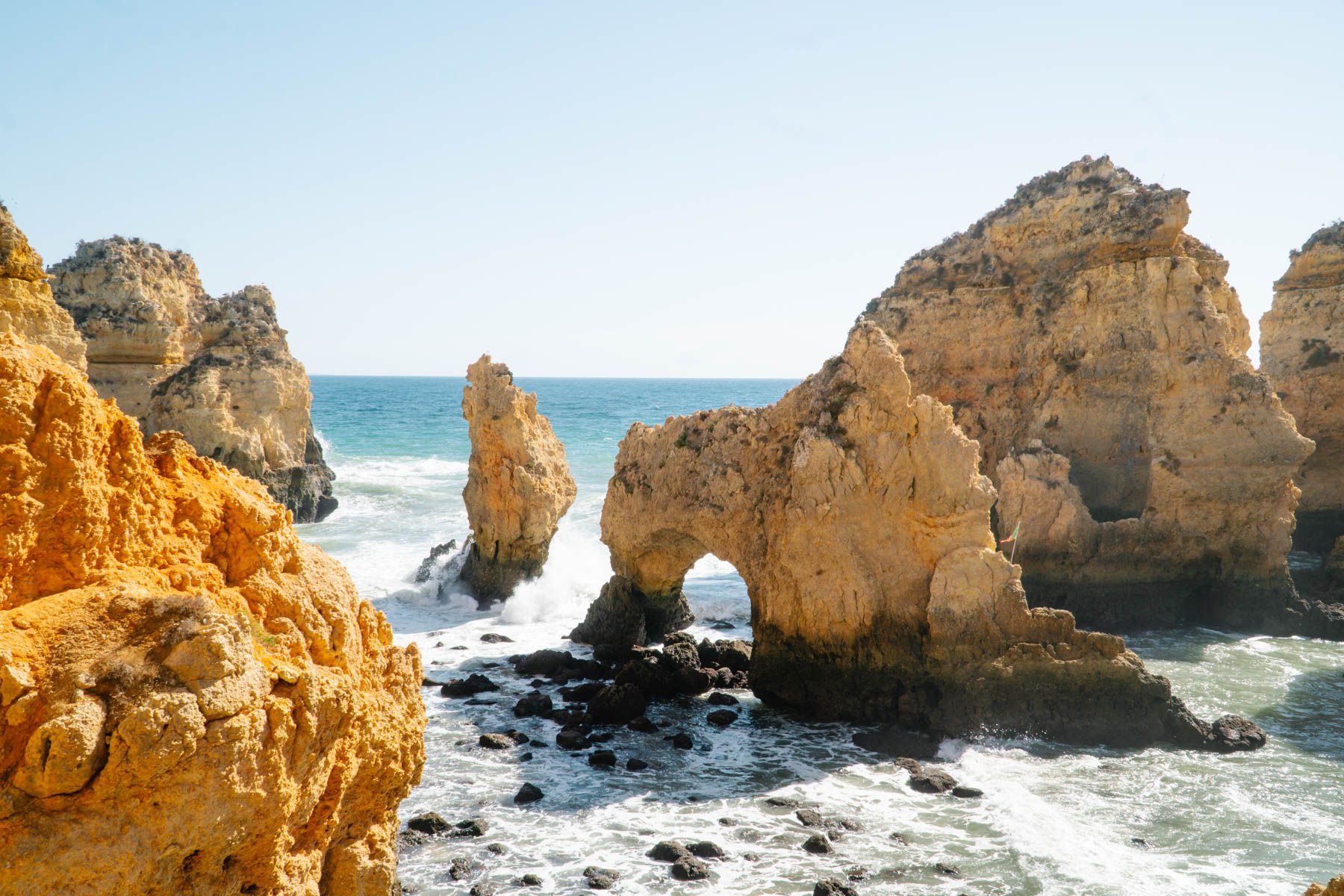
Read on for my Portugal travel tips about getting to Portugal, when to visit Portugal, how long to stay in Portugal, and Portugal travel tips, and get started planning your dream trip.
If you aren’t sure where you want to go in Portugal, I have put together four sample one-week Portugal itineraries that you can choose from. If you would rather have someone else plan your trip and put together an amazing journey through Portugal with unique experiences, I’d highly recommend working with my partner EPIC Travel. Mention We3Travel when contacting EPIC Travel and receive a free VIP welcome gift when you arrive on your EPIC journey to Portugal.
Getting to Portugal

Note: This post may contain affiliate links. If you click a link and make a purchase, I may receive a small commission. All opinions are my own.
Tap Airlines, Portugal’s flagship carrier, offers direct flights to Lisbon or Porto from many US cities including Boston, Newark, Washington D.C., Miami, Chicago, and San Francisco. Known as being an inexpensive option for flying to Europe, TAP Airlines really maximizes its free stopover program to encourage visitors to spend time in Portugal. When you book a stopover with TAP Airlines, you can stay from one to five nights in either Porto or Lisbon for no additional charge.
After flying TAP twice (note: my flights were complimentary as part of a media trip), I find them on par with other national carriers such as Aer Lingus or the old Alitalia. As part of the Star Alliance, you can also bid on upgrades or use miles to upgrade to Executive class or EconomyXtra. EconomyXtra seats offer spacious legroom and a generous recline, while Executive class seats deliver a full lay-flat bed for comfortable transatlantic flights. (See a full review of TAP Airlines Executive class.)
When to Visit Portugal
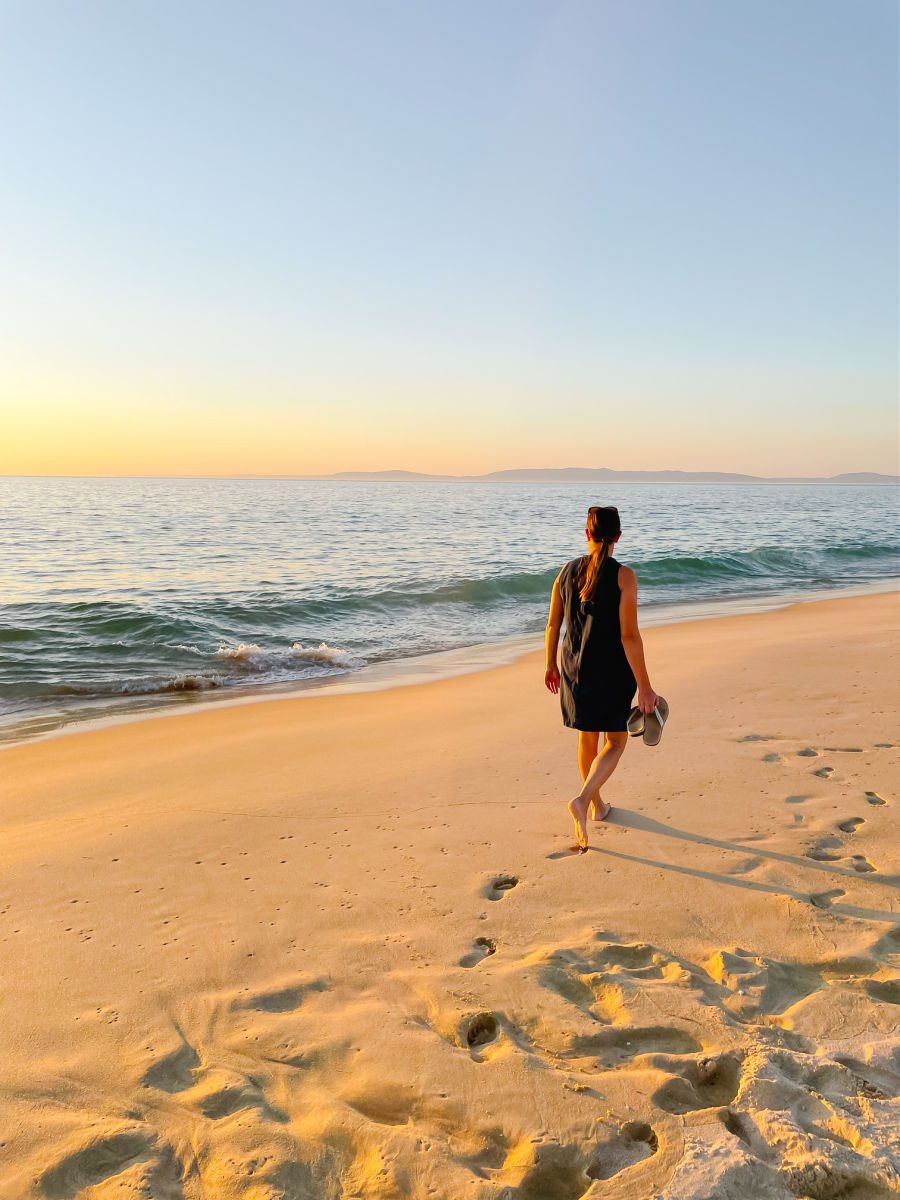
The best times to go to Portugal really depends on the region(s) you plan on visiting, but in general, the shoulder seasons of May-June and September-October are going to be ideal. April and November are known to be rainy throughout the country and while winter temperatures in Portugal aren’t frigid (usually in the 40s and 50s), you will enjoy more time outside during those shoulder season months.
The cities of Lisbon and Porto are always going to be busy, especially during the summer and holiday breaks. But let’s talk about some of the other regions:
- Douro Valley, and northern Portugal: late August through October are ideal in the north. Wine harvest typically runs from late August to late September, although when we were there in early October a few vineyards were still harvesting and it was a great time to visit to see the grape stomping in action.
- Interior Alentejo: this dry region gets extremely hot in the summer, with temperature soaring above 40-45 degrees Celsius (above 100 degrees Fahrenheit.) The ideal time to visit would be in September or early October during the wine harvest when the temperatures are perfect for spending time outside or relaxing by the pool. May and June would also be pleasant, but July and August sound a bit unbearable to spend much time outside of the pool or air conditioning, and climate change is only making this more extreme. It also makes temperatures a bit less predictable. When I visited in October, the temperatures were in the high 70s or low to mid-80s, although this is unusually warm.
- Coastal Alentejo: if you want to enjoy the beach, you should visit between May and October. While the beaches will be more crowded with locals coming down from Lisbon, just walk a few minutes down the beach and you will have plenty of space to enjoy this area’s gorgeous wide sand.
- Algarve: the Algarve is really hopping in the summer when the tourists flock to the coast, but it really can be enjoyable year-round. You may not be swimming in the winter, but you can enjoy hiking the cliffs and exploring the caves and coastline. Plus the towns might be a little quieter during the off-season.
- Azores: the ideal time to visit the Azores is May-July, when the hydrangeas are in full bloom and the islands are bursting with color and lush greens. It will also be the most crowded. But luckily, the Gulf Stream keeps the waters around the islands fairly warm year round. No matter what time of year that you visit, the weather in the islands is very temperamental and can change at a moment’s notice so it is best to be prepared for sun, rain, wind, and fog — all in one day!
How Long to Spend in Portugal

Portugal is actually a fairly small country, not even as large as Indiana. But don’t underestimate how much time you need to properly explore the country! I hear so many people talking about doing Spain and Portugal in one trip. Well, I can tell you that I have spent two weeks in Spain and altogether three weeks in Portugal and I have not come close to seeing everything that I’d like to see in either country.
If you can spare the time, I’d recommend spending at least two weeks in Portugal and exploring three to four regions in each trip. I have created four different, one-week Portugal itineraries in a separate post, but some possible 10-14 day itinerary ideas are:
- Porto (3 days) + Douro (2-3 days) + Lisbon (3 days) + Sintra (1 day trip) + Cascais or Comporta (3 days)
- Lisbon (3-5 days with day trips) + Algarve (5 days)
- Porto (3 days) + Alentejo (5-7 days) + Lisbon (3-4 days)
- Azores: São Miguel (5 days) + Pico (3 -4 days with day trip to São Jorge) + Terceira (3 days)
Planning a Trip to Portugal
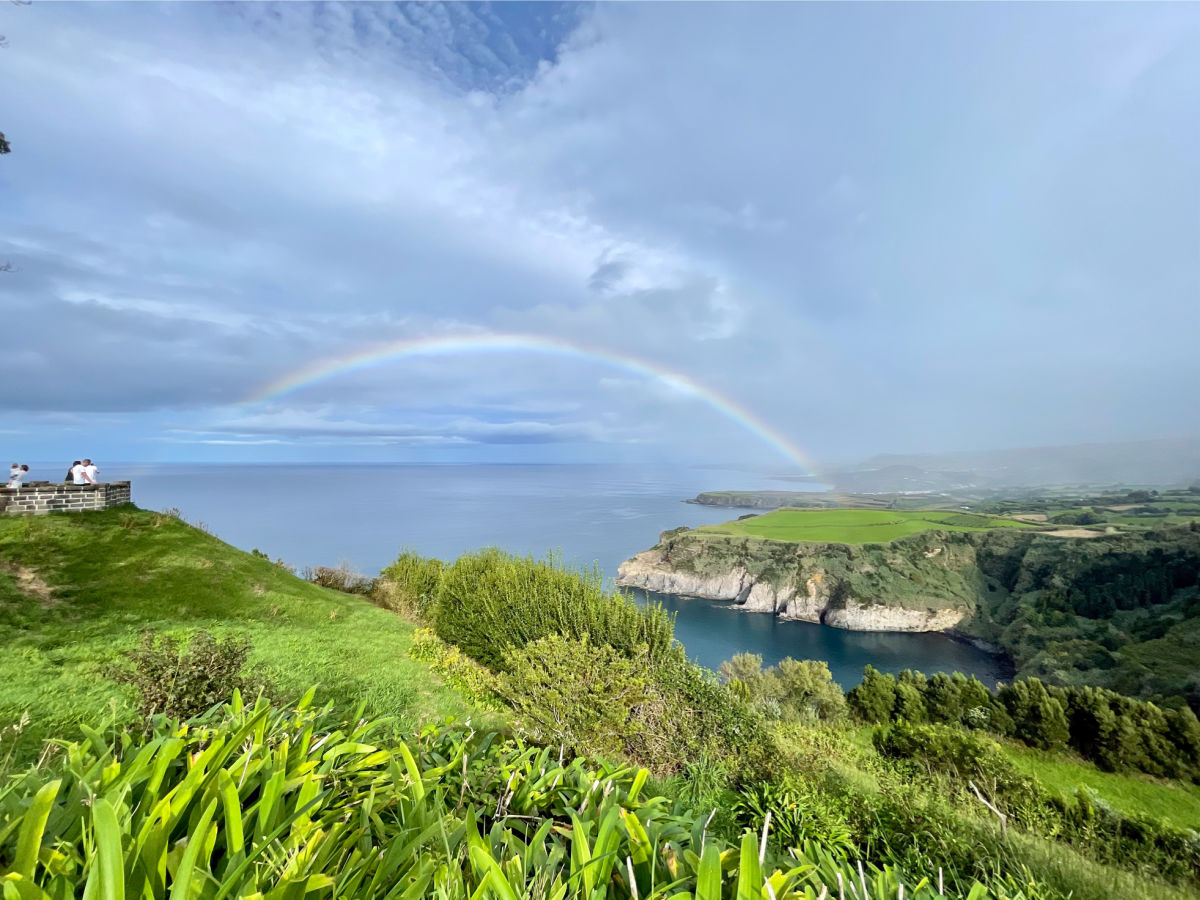
Planning a basic trip to Portugal isn’t hard, there is a lot of information available to help you decide where to stay and things to do in Lisbon, Sintra, Porto, and Cascais. However, if you want to venture beyond the ordinary, you may want some help planning your trip. Full disclosure, my recent trip to Portugal was hosted by Epic Travel and its travel partners so that I could experience an EPIC Portugal itinerary.
EPIC Travel is a boutique agency that specializes in travel to Portugal and Morocco. Its travel planners live in-country and have close relationships with hotels, guides, drivers, and tour operators on the ground. EPIC specializes in planning custom itineraries for clients that want to journey deeper and enjoy adventure and cultural experiences along the way.
In my experience working with EPIC both in Portugal and when I hired them to help me plan my Morocco trip, there are a wealth of reasons to work with an agency like EPIC to plan your trip to Portugal, including:
- Unique experiences — EPIC can arrange experiences that you couldn’t even think up on your own because you didn’t know they existed. These are sourced through close relationships on the ground and taking the time to really understand culture and engage with locals. Examples include cork trekking, bridge climbing, private tram tours with chef’s tasting menus, personalized farm visits and cooking classes, and so much more.
- Boutique, upscale and luxury hotels — EPIC goes out of its way to find interesting hotels that offer high touch customer service instead of going with the typical offerings you find on tour itineraries. And more than that, they can perfectly match individual travelers with an appropriate hotel based on travel style and budget. Because EPIC stays in close touch with hotel management, they can also pair you with the best room type and have sought out hotels that offer great amenities for families including villas with kitchens and children’s activities.
- High-touch service — the EPIC team works closely with clients to design a custom itinerary based on your travel tastes and interests. They are also on-hand to help adjust on the fly or handle any problems that arise. They even went so far as to greet us upon arrival at our hotel and arrange our COVID tests for the Azores.
- Save tons of time — Could you find these unique experiences and hotels on your own? Maybe with enough digging. But why spend hours and hours researching and still not be sure if you are making the right choices. It is so much of a time and mental energy savings to work with an expert. And not someone who is just outsourcing it to a third-party, but someone with direct relationships in your destination.
If you would like help planning and booking your trip to Portugal, please reach out to EPIC Travel and let them know that you read about them on WE3TRAVEL and you will receive a VIP Welcome Gift as a thank you!
Money & Language Matters

Traveling through Portugal is really quite easy, especially as an American. English is very widely spoken, although learning to say Bom Dia (good morning) and obrigado/obrigada (thank you) is a good idea [note: Duolingo only supports Brazilian Portuguese and the languages have a lot of differences.]
It is also a fairly cashless economy, with most restaurants and shops accepting Visa and Mastercard with a tap and pay chip, and many supporting Apple Pay. Just make sure you are using a credit card that doesn’t charge international transaction fees and contact your bank in advance to let them know about any international travel so they don’t block your transactions for fear of fraud (unless you have a travel card that doesn’t require this.)
However, you will find the few holdouts so it pays to either get some Euro from your local bank (be sure to order it at least a week ahead of your trip) or take some money out of an ATM (watch out for ATMs that charge high fees) when you arrive. Not all banks/ATMs will accept cards from other banks so it might be worth it to exchange some money before you arrive in the country for small purchases and tips (always request small bills.)
Before you go, be sure to check out my post on how much a trip to Portugal costs.
Tipping at restaurants isn’t customary and if you do leave a gratuity, it should be a small amount using just a few coins you have on hand. I always think it is a good idea to tip guides that provide great service, and those are usually happily accepted.
Food Matters
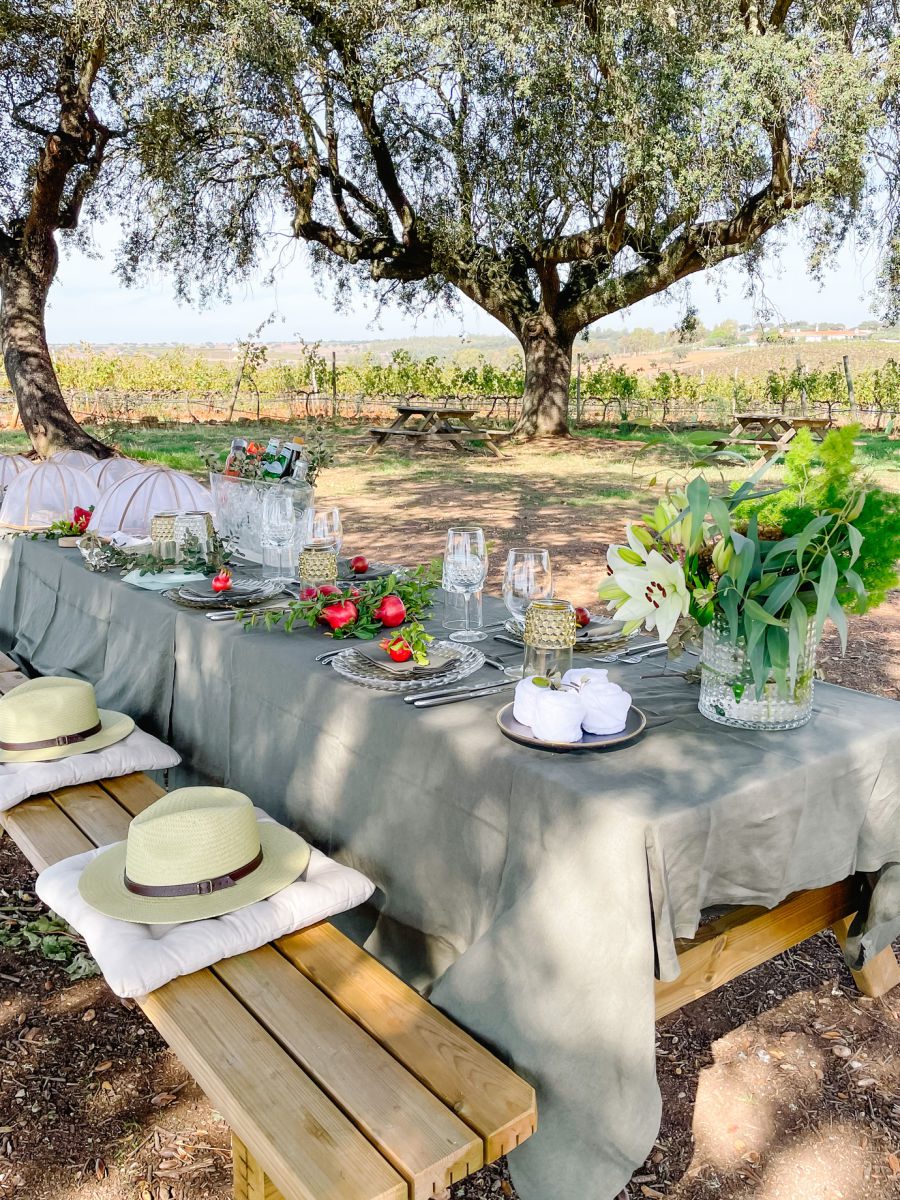
The food in Portugal varies from high-end, fine dining with Michelin-starred chefs to casual tabernas serving up inexpensive, authentic dishes. Some dishes you will see frequently include:
- Pastéis de bacalhau – salt cod fritters or croquettes
- Pastel de nata (or Belem) – classic egg custard tarts
- Caldo verde – kale or cabbage soup (often served as a starter)
- Sardines – typically grilled
- Fresh seafood – from shrimp in garlic butter to seafood rice to sea bass, monk fish, and octopus
- Bifana – the typical beef or pork sandwich
- Francesinha – sausage sandwich slathered in cheese and gravy found in Porto
- Piri piri chicken – roasted or grilled with spices from Mozambique
- Iberian black pig – acorn-fed and similar to Spanish jamon iberico but served both cured and as a grilled tenderloin
- Orange juice – don’t miss out on trying some of Portugal’s excellent oranges and other fruits
- Local honey – when you see local honey on the breakfast buffet, make sure to enjoy some!
Eating out in Portugal can be very affordable compared to other countries. If you are eating at a casual taberna, you can often get a full meal for under 10 euros, 15 with a glass of wine to go with it. One thing to look out for is the “couvert” which is typically a small basket of bread and dish of olives brought to the table at the beginning of the meal. This is sometimes listed on the menu and needs to be ordered, but other times it is brought automatically (but that doesn’t mean it is free.) If you don’t want it, or don’t want to pay for it, just turn it away.
Getting Around
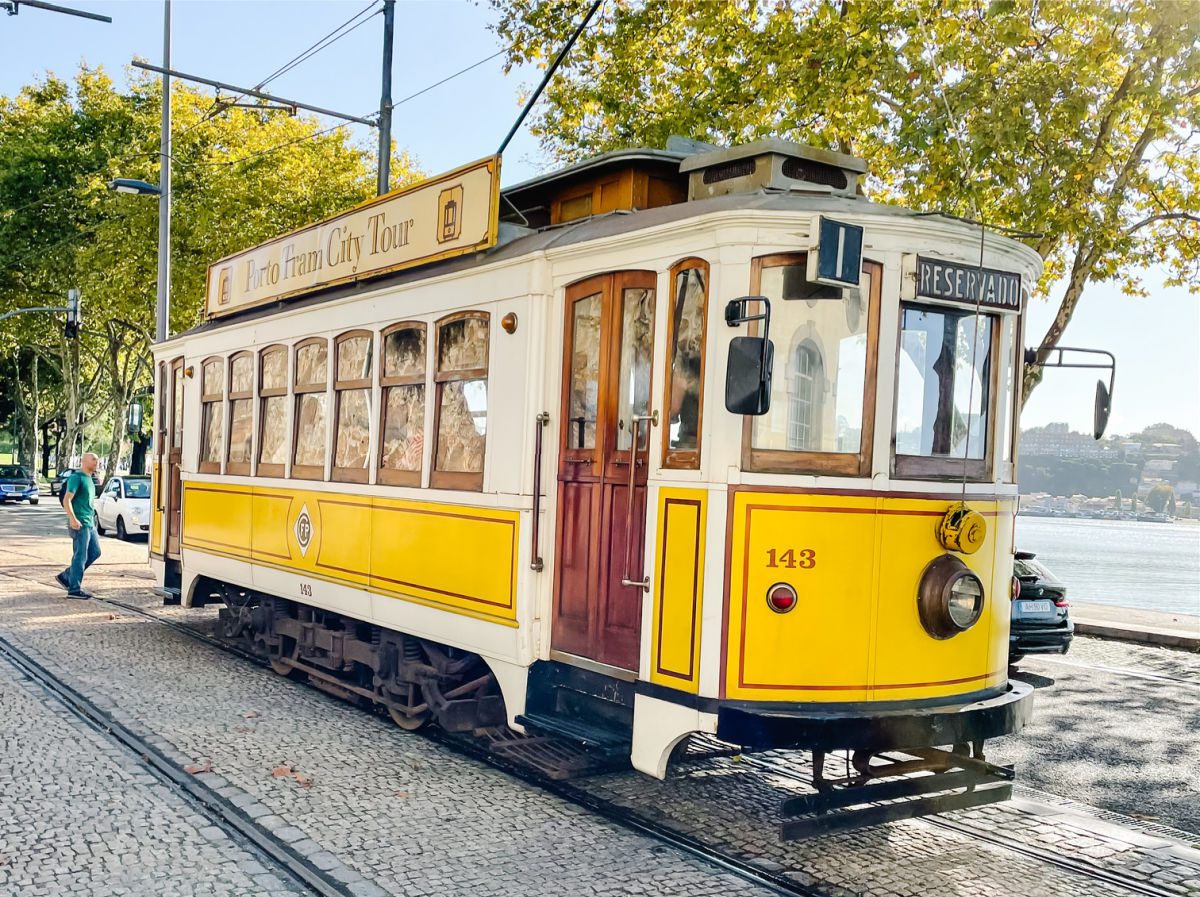
Getting from place to place in Portugal isn’t hard and in most cases, it is easy to self-drive throughout the country on a well-established highway system. I say that with a few caveats!
- Do not attempt to drive in Lisbon or central Porto unless you are an experienced city driver and you have a place to park at your hotel
- Portuguese drivers can be quite aggressive and like to tailgate and don’t necessarily stay within the lines
- Driving through small towns can be a little nerve-wracking as the streets are extremely narrow (and often one-way so you will want a good navigation system)
- There are a lot of roundabouts/rotaries so make sure you are comfortable with how to enter and exit
I would also very highly recommend hiring a driver or taking a tour when visiting vineyards. Not only do you not want to drink and drive, but some can be a bit tricky to find. Also, some of the roads in the Douro Valley, especially on the north side of the river are gravel, narrow, and closely grip the edge of the cliffs.
You can also fly from Lisbon to Porto or the Algarve, but honestly, the drive isn’t that long so I find it is easier to just drive. If you fly into one city you can pick up a rental car (if from outside of the EU you may need an International Driver’s Permit, check with your rental car company) outside of the city and drop it off outside of the city on the return. Uber is fairly easy to find in the cities and trams are also available for getting around town (although often full because they are popular with tourists.)
Packing for Portugal

Choosing what to pack for Portugal will vary depending on when and where you are going, but there are a few items you need to put on your packing list:
- Comfortable, non-slip shoes: the tile sidewalks are lovely but they are worn smooth and slippery, especially on the many hills in Porto and Lisbon and even more so when it rains;
- Travel umbrella and rain coat: speaking of rain, you can expect to encounter some, especially if visiting the northern part of the country or between October and April;
- Sunscreen, sunglasses and a hat: when the sun does come out, it can be strong, even in October! Be prepared with a good sunscreen and a hat if you will be spending a lot of time outside;
- Bug spray or lotion: if you are visiting the Alentejo region, especially around farms or rice fields, you will encounter some flies and mosquitos, so best to be prepared;
- Travel-safe bag: Lisbon is known to have pickpockets, especially around crowded squares and scenic overlooks. Don’t lose your valuables, carry a bag that offers theft-protection. I bring my Travelon locking sling bag with anti-theft and anti-slash features.
- Motion sickness meds or bands: if you are driving through the Douro Valley or the winding roads in the Azores, you will want to be prepared if you suffer from motion sickness.
So are you ready to plan a trip to Portugal? I’d recommend reaching out to EPIC Travel to see how they can help and reading some of my other articles about Portugal.
Save this to Pinterest
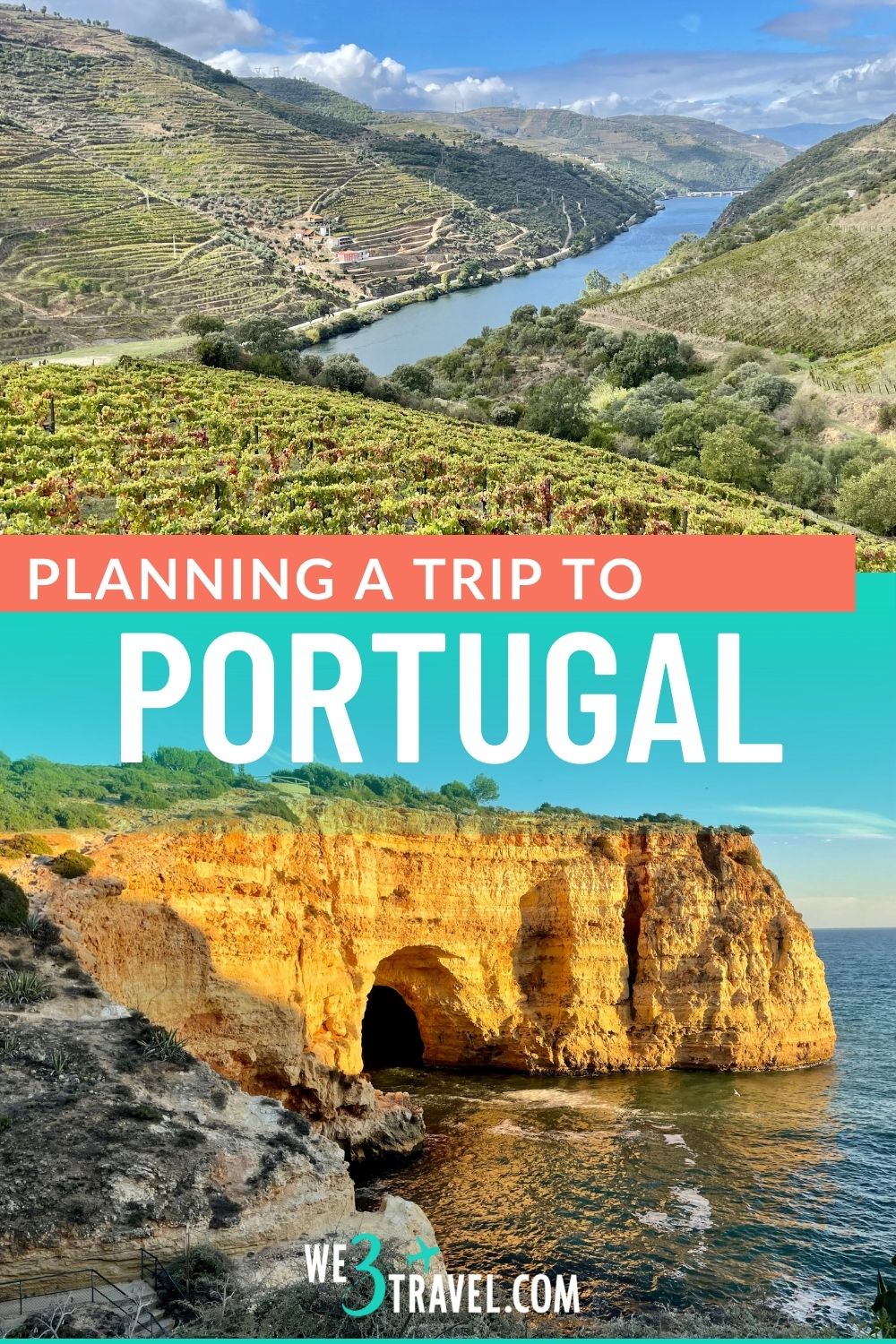
The post Everything you Need to know when Planning a Trip to Portugal appeared first on We3Travel.
